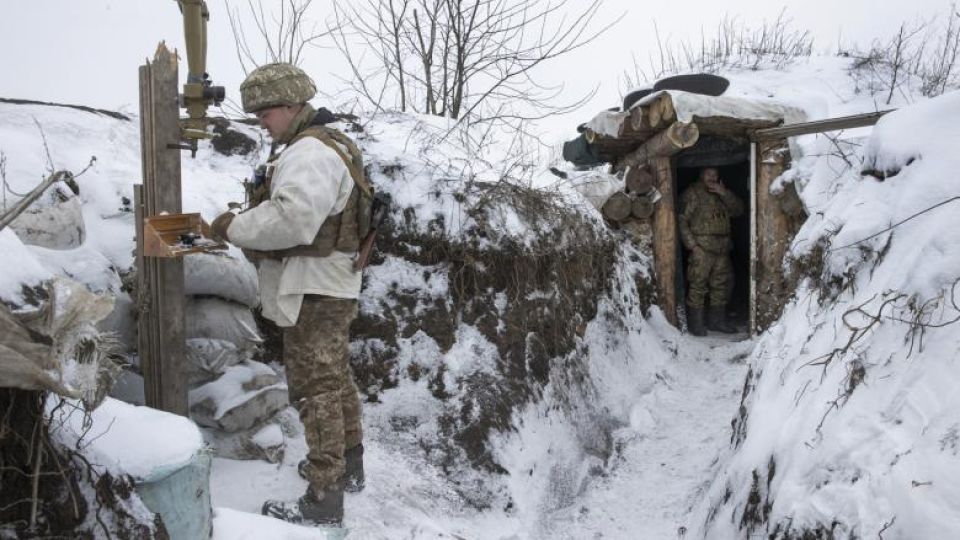February 3, 2022
SINGAPORE – The Ukrainian community in Singapore is on tenterhooks after the recent Russian troop build-up on the Ukrainian border, with some fearing an invasion and others hopeful of a diplomatic de-escalation.
Ms Galyna Kogut, president of the Ukrainian Club in Singapore, told The Straits Times that there is “definitely a lot of anxiety” over what could possibly happen.
She and several club members have been keeping watch on the situation, though they have not had large group discussions in person because of Covid-19 restrictions.
The club, which has a few hundred active members, used to organise parties and gatherings during festive seasons to unite the 450 or so Ukrainians living here.
Asked about the similarity of the current situation to Russia’s annexation of Crimea in 2014, Ms Kogut said: “There was an internal Ukrainian crisis then, and the Russians capitalised on that… They started attacking people in the streets and annexed part of Ukraine (Crimea).
“At that point in time, it was very surprising that they did that, and that tells me that this country can do anything, so there is a much higher level of anxiety at the moment,” she added.
Ms Kogut, a research fellow at the National Institute of Education studying bilingualism, said she ensures that her eight-year-old son is aware of the ongoing situation in Ukraine – to instil in him the principles of fairness.
“It is also to teach him some critical thinking skills like what our schools are advocating, getting him to consider whether it is a good thing to do, especially in the 21st century.
“I also explained that there are multiple facets to the situation, overall he is aware of the Russian aggression on the eastern side, and there is a threat of a massive war. He is not happy about it as war is never a good thing,” she added.
Mr Kostiantyn Terekhov, 42, a manager in a shipping company here, feels that the anxiety of not knowing if an invasion is imminent is debilitating.
“For my extended family back home, life has come to a standstill. They are just waiting to see what will happen. Economically, this could take a toll on the country as foreign and local investment might come to a halt,” he said.
Recalling how he had moved to Singapore just two months before the annexation of Crimea, Mr Terekhov and his family were “shocked” and taken aback by the situation back then.
“My parents live just 50km from Crimea, which is temporarily occupied by Russia, so we worry a lot. Crimea is still under Russian control, and now that we know what (Russian President Vladimir) Putin is capable of, I hope Ukraine will be better prepared in case of an invasion,” he said.

Mr Kostiantyn Terekhov and his family during their last visit to their hometown in Odesa, Ukraine, in 2019. PHOTO: COURTESY OF KONSTIANTYN TEREKHOV
The father of three makes it a point to ensure that his children aged five, seven and 11 are aware of Ukrainian history and Russian aggression, to inculcate in them a sense of national identity.
“Sometimes, people get confused and ask if they are Russian. So we need to make it clear to them that they are Ukrainian and explain the longstanding history between the countries so that they have a better understanding of who they are,” he added.
The children are enrolled in weekly Ukrainian lessons and are exposed to books and texts from their home country.
Russia’s recent deployment of around 100,000 troops near Ukrainian border comes amid wide-ranging demands for the West to bar Ukraine from ever joining Nato, and for the military alliance to pull back troops and weapons from Eastern Europe to the levels in the 1990s.
On Sunday (Jan 30), Kyiv urged Moscow to pull back its troops from Ukraine’s border and continue dialogues with the West if it is serious about de-escalating tensions.
Last Friday, US Defence Secretary Lloyd Austin said the US was committed to helping Ukraine defend itself, through the provision of more weaponry given that Russia had amassed enough military capacity to attack Ukraine.
Since then, Russian and Ukrainian representatives have agreed to preserve a ceasefire in eastern Ukraine to hold new talks in Berlin in February. This follows a seemingly “positive” outcome from talks in Paris last week between both countries as well as France and Germany.
Ukraine’s President Volodymyr Zelensky had sought to downplay the possibility of an invasion amid escalating tensions, for fear of hurting the country’s already battered economy.
Some Ukrainians here remain hopeful the situation will take a turn for the better and war can be averted, especially with diplomatic negotiations under way.
Artist Olga Ibadullayev, 36, who was also speaking on behalf of her husband, felt the mobilisation of troops pointed to a larger power play between Russia and the West.
“Putin wants commitment from the West that there will be no more eastern expansion of Nato, while the US and European Union are trying to match the degree of rhetoric and influence. Military events are to put more weight to the negotiation, and it is just unfortunate that Ukraine appeared in the midst of this power game,” she said.
“The primary aim this time seems to be about preventing Ukraine from going to Nato… Nobody wants a war, and I hope that a diplomatic de-escalation will be achieved soon,” she added.
Ms Ibadullayev noted that the situation in Ukraine has not immediately affected her relatives and friends economically, though she expects the economy to come under increasing pressure, and the morale of its populace to be increasingly affected.
“So far, most people we know in Ukraine don’t seem to be in panic yet and are hopeful too,” she said.


